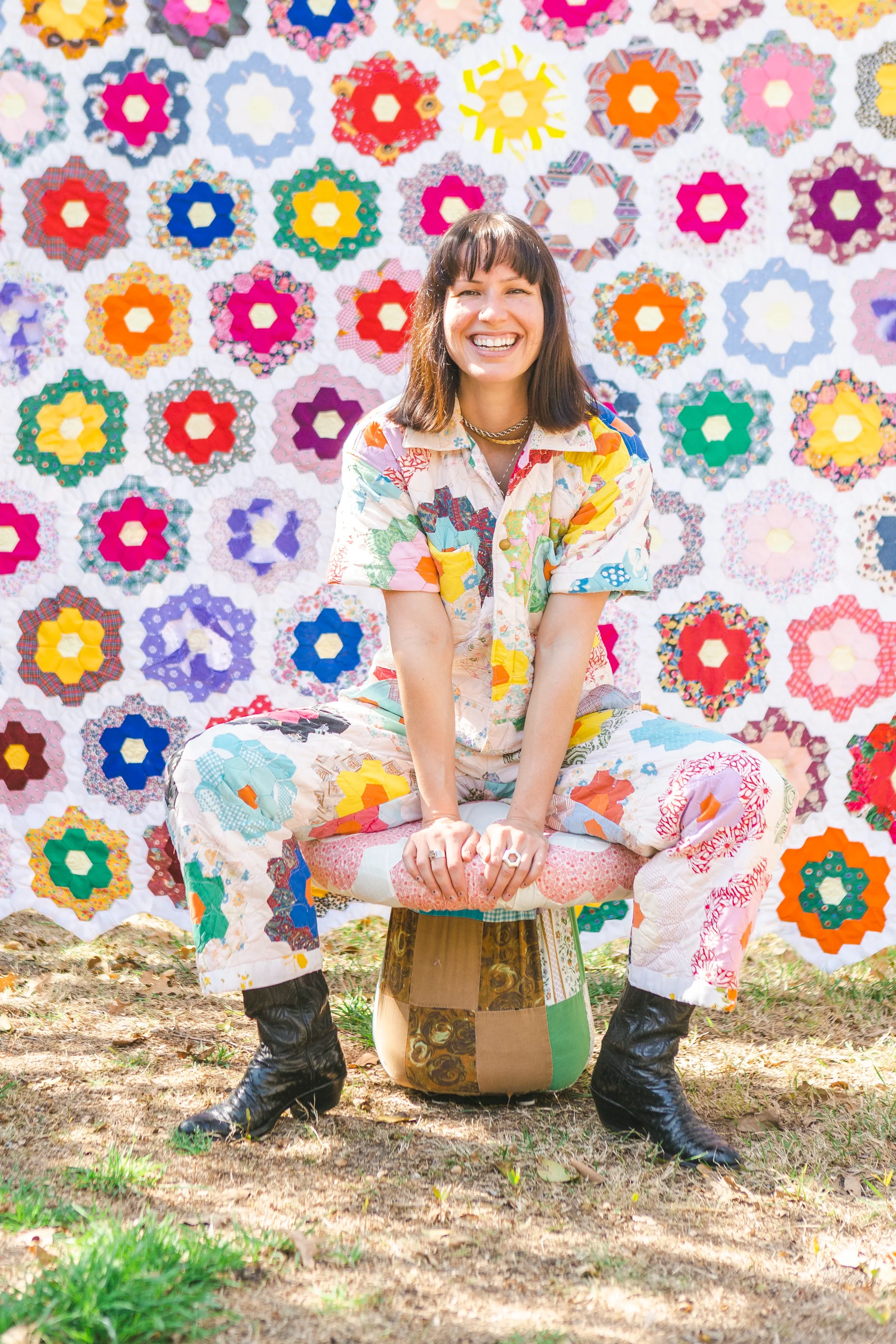Psychic Outlaw started from my love for quilts and vintage textiles. I’ve always gotten a thrill from hunting down special clothing, and over time, that passion grew into making my own one-of-a-kind pieces. I wanted everything I made to feel like a true vintage treasure- full of care, detail, and the kind of handwork I’ve always admired in older garments. That’s why using vintage textiles and thrifted materials felt like the only way to give my creations that real, lived-in soul of the past.
As my brand grew, I started sourcing on a bigger scale- and that’s when I discovered the world of rag and textile houses. To me, they were beautiful hunting grounds. But at the same time, it was eye-opening to see just how much waste exists in the textile industry. The more I learned, and the more I shared with my community, the more Psychic Outlaw became something bigger than just a clothing brand. It became a small beacon of hope for reducing textile waste and a part of what’s now known as the Slow Fashion Movement. I was incredibly honored- and honestly, a little overwhelmed- by the support that came pouring in through social media, kind messages, and especially through orders.
Then came the pandemic, which was a big turning point. I suddenly couldn’t go out and hunt for fabrics like I used to, so I had an idea: what if people sent me their own quilts, and I’d turn them into jackets in their size and send them back. That became such a special chapter in Psychic Outlaw’s story. It felt like a group art project at a time when we were all craving connection, creativity, and something positive to focus on. Through it all, the business helped spark important conversations about fast fashion, environmental impact, labor, and how we can be more intentional with what we wear.
In the later years, I opened a retail space called Shop Slow. The Psychic Outlaw sewing studio was tucked in the back, and the front featured my creations alongside pieces from 15+ other slow fashion and upcycling artists. It became a lively, welcoming hub- we hosted workshops with local artists and makers, taught mending and upcycling skills, held clothing swaps, and gathered as a community to keep the slow fashion movement going strong.
Eventually, I decided it was time to take a step back. After the back-to-back loss of my mother and my dear friend Michael Longcrier- who had been both a close partner and my guide into the world of recycled textiles- I knew I needed space to heal. I’m incredibly grateful I got to share the joy and growth of Psychic Outlaw with my mom while she was still here. She was always my biggest supporter, and all I ever wanted was to make her proud and show her that I could turn art into a way of life.
Big love to my team that supported me through it all:
Lori Jones, Mikaela Friedman, Anais Rose, Mia Alfonso, Thuan Nguyen, and Shelby Rahe


